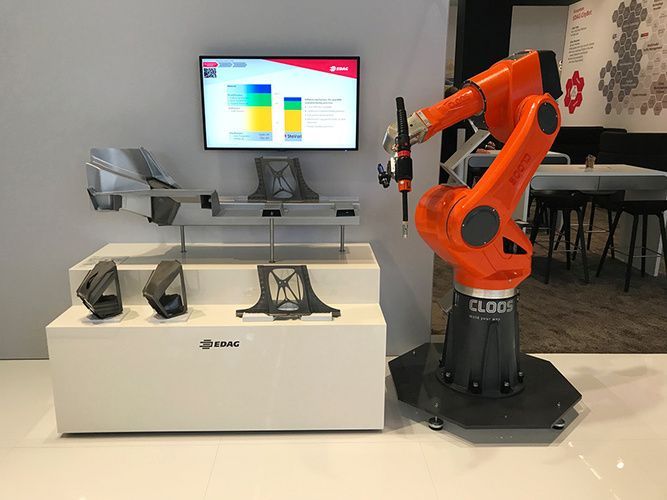Cleverly combined, machine vision, robotics and intelligent welding process monitoring can ensure that 3D-printed metal components are independently joined by a robot. hema electronic is researching this together with other partners in the joint project StaVari.
In the current research project StaVari nine partners are researching a continuous process chain for the additive manufacturing of complex components made of an innovative steel grade. The intelligent camera system from hema electronic takes over the task of guidance and informs the robot controller about necessary path changes. Once set, the system can thus independently complete the welding task in 3D space.
The aim of the research project is to establish a standardized control circuit for self-controlled, robot-guided quality monitoring. For this purpose, a highly stressed, variant-intensive vehicle structure was designed as a demonstrator. In the further course of the project this will be tested in a real test. The project participants expect this to lead to the next technological step towards autonomous robotics for joining processes.
The consistently positive response from visitors and the intensive discussions during the trade fair underline the need for automated solutions and confirm the chosen approach of the project as promising. By combining 3D printing and AI-based sensor technology, StaVari opens up new perspectives for the automotive industry to shorten the time-to-market for prototypes and small series for steel-based car bodies in small and medium quantities. Examples include cars with alternative drive systems, commercial vehicles, two-wheelers, construction machinery or rail vehicles.
In addition to hema electronic, the alliance partners Ziehm Imaging, Salzgitter Mannesmann Forschung, Cloos, Concept Laser, Indutherm, IWT Bremen, Fraunhofer IAPT and SLK TU Chemnitz are working on this research project under the leadership of the EDAG Group. The research project "StaVari" is funded by the Federal Ministry of Education and Research (BMBF) under the funding code 02P15B050 and is supervised by the Project Management Agency Karlsruhe (PTKA).
